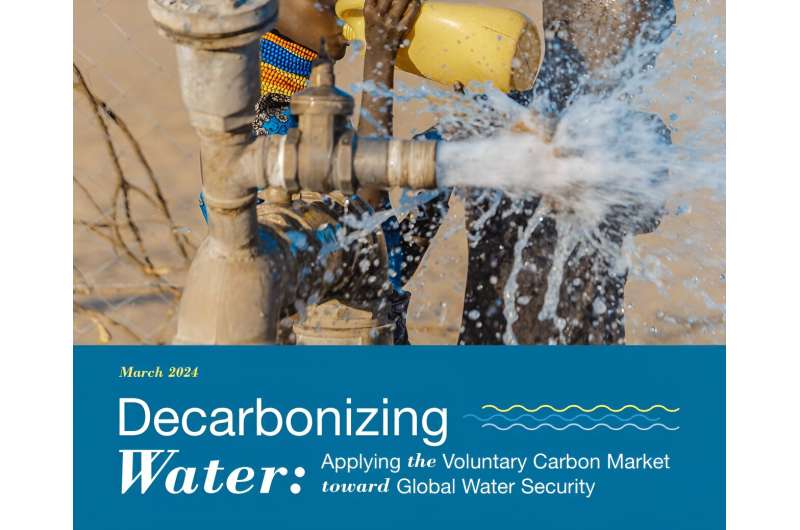This article has been reviewed according to Science X's editorial process and policies. Editors have highlighted the following attributes while ensuring the content's credibility:
fact-checked
trusted source
proofread
Why water must be at the heart of climate action

The Mortenson Center in Global Engineering & Resilience at the University of Colorado Boulder along with Castalia Advisors were commissioned by WaterAid's Resilient Water Accelerator (RWA), the Voluntary Carbon Market Integrity Initiative (VCMI), and HSBC to discover an achievable pathway to creating a green, resilient future for global water supplies supported by voluntary carbon markets.
Through their research, it was found that more than 1.6 billion CO2 emissions could be saved per year in the global water sector, equivalent to nearly half of the EU's annual emissions, confirming the importance of placing water at the heart of climate action.
Their report, just published, is titled "Decarbonizing Water: Applying the Voluntary Carbon Market Toward Global Water Security."
Evan Thomas, Director of the Mortenson Center in Global Engineering and Resilience and co-author of the report says, "The first thing many people notice about climate change is what it's doing to our water. Dry places are becoming drier; wet places are becoming wetter. But funding water security solutions is challenging because water is a local problem.
"In this report, we show how local water projects can be brought into a global carbon credit economy. Over 1.6 billion carbon credits could be generated per year from water security projects—for example to encourage water conservation in Colorado or water treatment in Rwanda. These credits as part of a liquid market can be bought and sold and create revenue that incentivizes the actions we all need to take to make sure water is available for everyone, always."
Resilient water, sanitation and hygiene systems are essential to building healthy communities and thriving economies, with the risk of water stress on the most vulnerable communities elevating climate, political and economic fragility, as noted in this year's global Top Risks 2024.
In practice, this would mean generating carbon credits from projects that deliver carbon savings as well as water benefits such as improved drinking water access in developing countries, reduced methane emissions from latrines and centralized wastewater treatment plants or restored coastal environments.
The research looked at where emissions come from within the water sector and found that delivering improvements in coastal blue carbon, wastewater treatment, drinking water treatment, irrigation, as well as energy efficiency more broadly, could improve water security and generate carbon credit emission reductions.
This work comes at a critical time with increasing recognition that the climate crisis is a water crisis. A full 90% of all natural disasters are water-related, whether it be experienced through too little or too much water. From flood defenses to drought resistance, the solutions are out there. But more investment and management are needed now to develop robust and reliable water, sanitation and hygiene systems that can withstand any climate.
The Resilient Water Accelerator is in an unique position to deepen access to the Voluntary Carbon Market. They are working to build and strengthen efforts to develop robust monitoring and management of water risk, and they are engaging with finance organizations such as African Development Bank, 2030 Water Resources Group and African Finance Corporation.
More information: Decarbonizing Water: Applying the Voluntary Carbon Market Toward Global Water Security. static1.squarespace.com/static … ch2024_FINAL-WEB.pdf
Provided by University of Colorado at Boulder





















